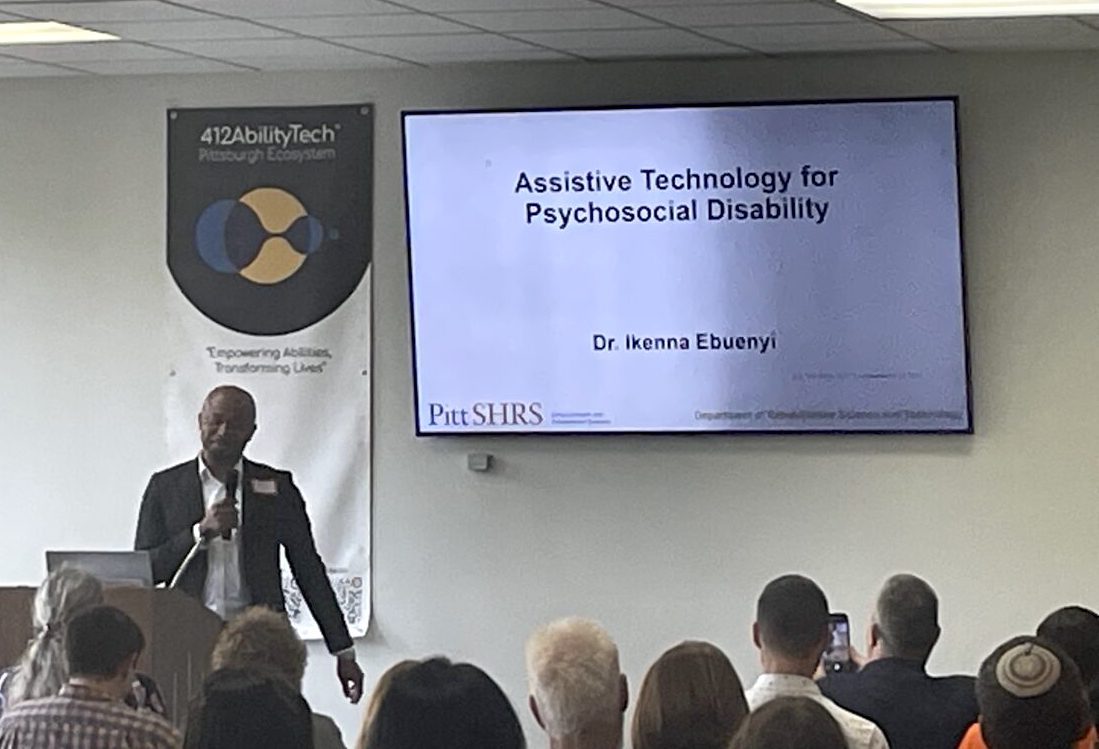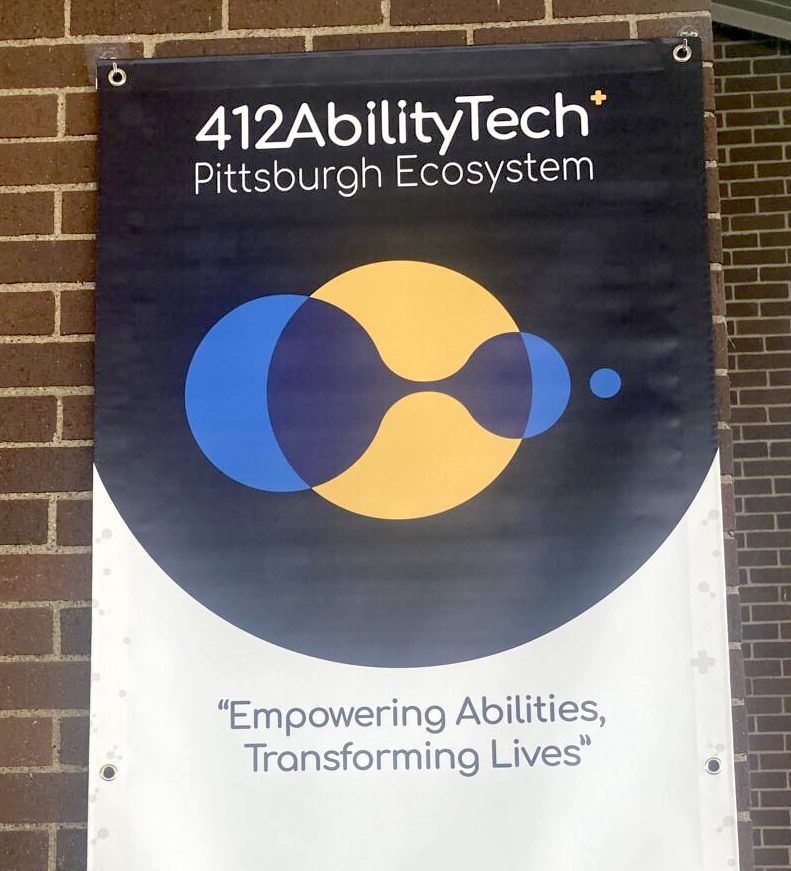The organization convenes family members, healthcare professionals, and technologists to figure out the best ways to accomplish that goal. During its Ability Tech Ecosystem Event last week, for instance, advocates from inside and outside the Steel City discussed what people with disabilities need most regarding assistive technology and other supports, such as affordable housing.
The event drew three dozen people to a room in the Bellevue branch of Allegheny Health Network Suburban — where healthcare and life sciences accelerator AlphaLab Health unveiled its new lab and coworking facility for startups in early 2022 — to hear presentations and forge connections.
It’s important to remember the needs of individuals with disabilities should always be front and center when designing assistive technology, event co-organizer and 412 Ability Tech board member Alexander Geht told Technical.ly.
“I think for developers, it’s most important to meet as many different kinds of people with different disabilities and also to understand what it exactly means for them,” Geht said. “When designing software, whether it’s for someone blind or with cerebral palsy, without meeting the people and asking them what they need, it’s very complicated.”
As an industrial designer who founded Bellevue’s Testa-Seat, which produces custom seating systems for kids with disabilities, Geht said the assistive technology field is often forgotten. Not only that, but when it is remembered, the focus is typically on physical disabilities as opposed to hidden ones such as epilepsy or traumatic brain injuries.
While more accessible buses and buildings are needed, there should be more research-supported applications and products available for hidden disabilities, too, as University of Pittsburgh Assistant Professor in the Department of Rehabilitation Science and Technology Ikenna Ebuenyi noted while speaking at the event.
“When you go to your phone app today, you’ll see more than 10,000 applications for mental health. Not all of them are validated for use [and] not all of them will be prescribed by a provider. I wouldn’t prescribe them in the clinic, except those that are data validated,” Ebuenyi said. “That’s why we need more research in order to prescribe them in collaboration between industry partners, researchers and individuals.”

Even when such assistive technology products exist, Geht pointed out that cost can be a barrier for individuals and families alike. Since the market for assistive technology is inherently small, he said, the prices tend to be higher. This can lead to the people who need the products the most not being able to afford them, or large companies steering clear of assistive technology because they view it as not profitable.
“It’s much more complicated to build the company and find the users because of this gap,” Geht said. “Many of the companies are not stocking assistive technology products. Because of this gap, most of the companies of assistive technology are also closing the company because of the lack of access to customers or they’re not able to create a company.”
What’s important moving forward, the co-organizer said, is for innovators, caretakers, parents, educators and people with disabilities to remain in communication with each other in order to get needs met. In anticipation of the next 412 Tech Ability event, Geht would like all parties involved to remember that the more connected they are, the better they’ll be able to assist people with disabilities.
“The main purpose is for 412 Ability Tech is to make a space for all the organizations in fields to create new connections, but also to provide a more efficient way to collaborate because, let’s say I’m making good seating systems, but my clients also need some kind of mobility devices,” Geht said. “If I don’t know how to provide them with mobile devices, I have no idea how to reimburse or to suggest them. So in this way, we will have a more inclusive way of people that also know what’s happening.”
Organizational partners listed on 412 Ability Tech’s website include the Pittsburgh Robotics Network, three of the region’s major universities, UPMC, and a slew of local nonprofits and companies.







